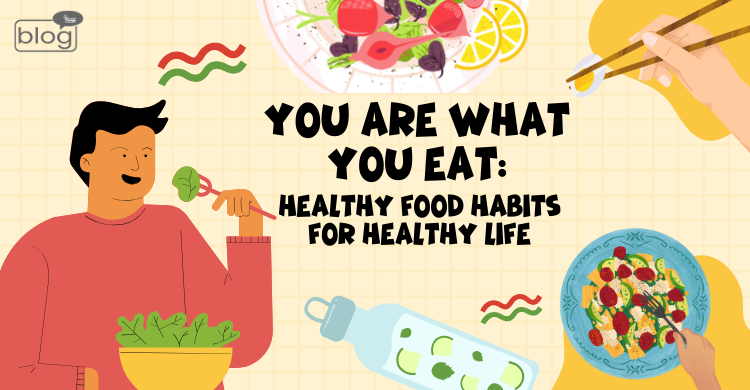The adage “You are what you eat” emphasizes the connection between nutrition and well-being. Our normal diet has an impact on our emotional, mental, and physical health. A balanced, healthy, and long life depends on maintaining a healthy eating pattern.
Balanced Eating
Eating the right amounts of a range of foods and adjusting the quantities based on the body’s requirements are essential components of a healthy, balanced diet. Fruits, whole grains, proteins, healthy fats, and adequate hydration are all components of a well-balanced and nutritious meal.
Vital vitamins, minerals, and antioxidants can be found in fruits and vegetables. Which have a significant impact on our development, the healing of injured body cells, and our physical and emotional well-being. A full range of nutrients can be obtained by including colorful fruits and vegetables in the meal’s half portion.
Refined grains are inferior to whole-grain wheat, brown rice, quinoa, and oats. Whole grains are high in fiber. Eating whole-grain food can be helpful for blood sugar control.
Meat, fish, poultry, beans, and tofu are the main sources of lean protein. Protein is the building block of our body and is essential for muscle and immune healing. Ten to thirty percent of each meal should consist of protein.
Avocados, olive oil, and fatty fish like salmon are good sources of healthy fats. These fats are essential for promoting brain function and reducing inflammation. Furthermore, fat helps regulate body temperature and keeps the body warm. Energy can be produced from the stored fat for the cells when needed. Between 25% and 35% of the meal should consist of fat. A vital component of good health is drinking adequate water. You should drink eight cups or more every day.
Importance of Eating Healthy
Eating a balanced diet makes it easier to maintain physical health. It reduces the chance of obesity and related diseases. Proper nutrition can also help regulate chronic illnesses like diabetes, high blood pressure, and heart disease. The body gets its energy from wholesome food as well.
There is a connection between food and mental health, according to some research. For instance, processed foods can exacerbate depressive symptoms, which is detrimental to mental health. A healthy body can support a healthy mind. Vitamin-, mineral-, and antioxidant-rich foods can promote health and stave off illness. A healthy meal with nutritious food can enhance the feeling of happiness and contentment.
Practical Tips for Healthy Eating
Time can be saved, and a variety of healthy eating options can be obtained by preparing meals in advance. Tracking one’s consumption, avoiding destruction during meals, avoiding processed foods and refined sugars as much as possible for improved health, and being knowledgeable about the food being bought are the ways to eat healthy. Consistency is more important than making huge changes at once, so healthy eating habits don’t have to be perfect. A healthy life can be built by progressively building healthy behaviors.
The food we eat is what builds our body. While dining, selecting healthy foods should be a primary concern. Adopting healthy eating habits is an investment in one’s long-term health and quality of life. Starting small and being consistent are the keys to keeping a healthy diet.
To read these types of blogs, click here.
Writer
Zabin Tasmin
Intern, Content Writing Department
YSSE

